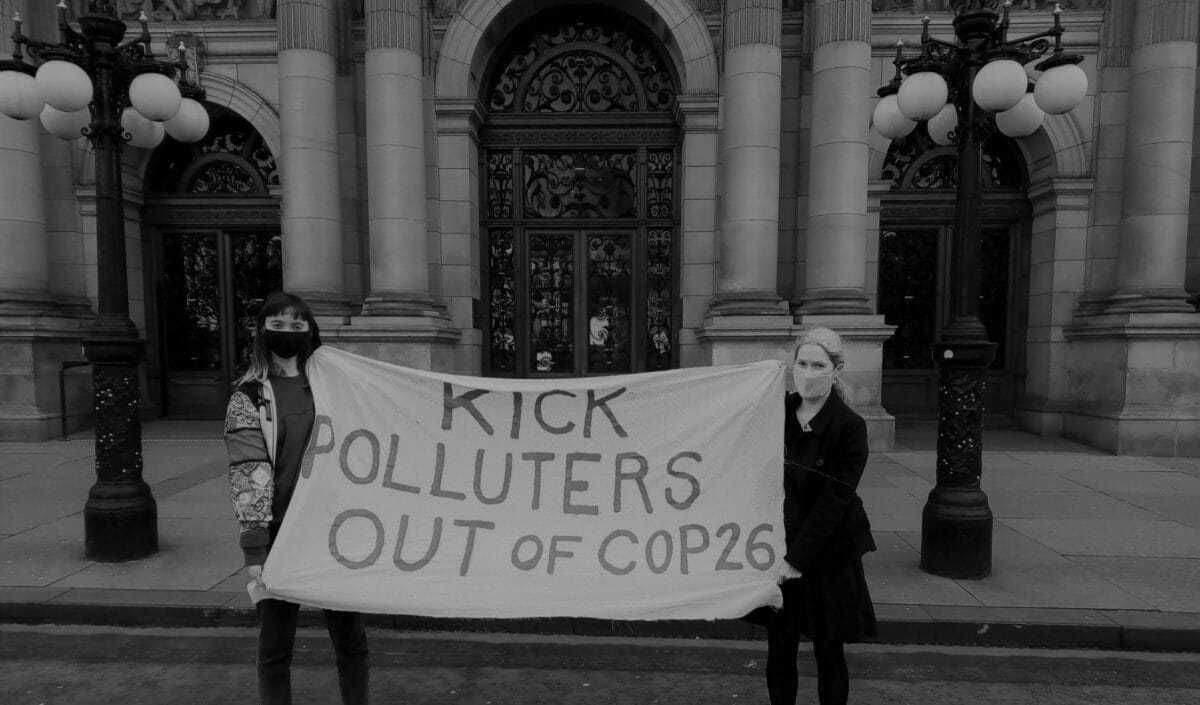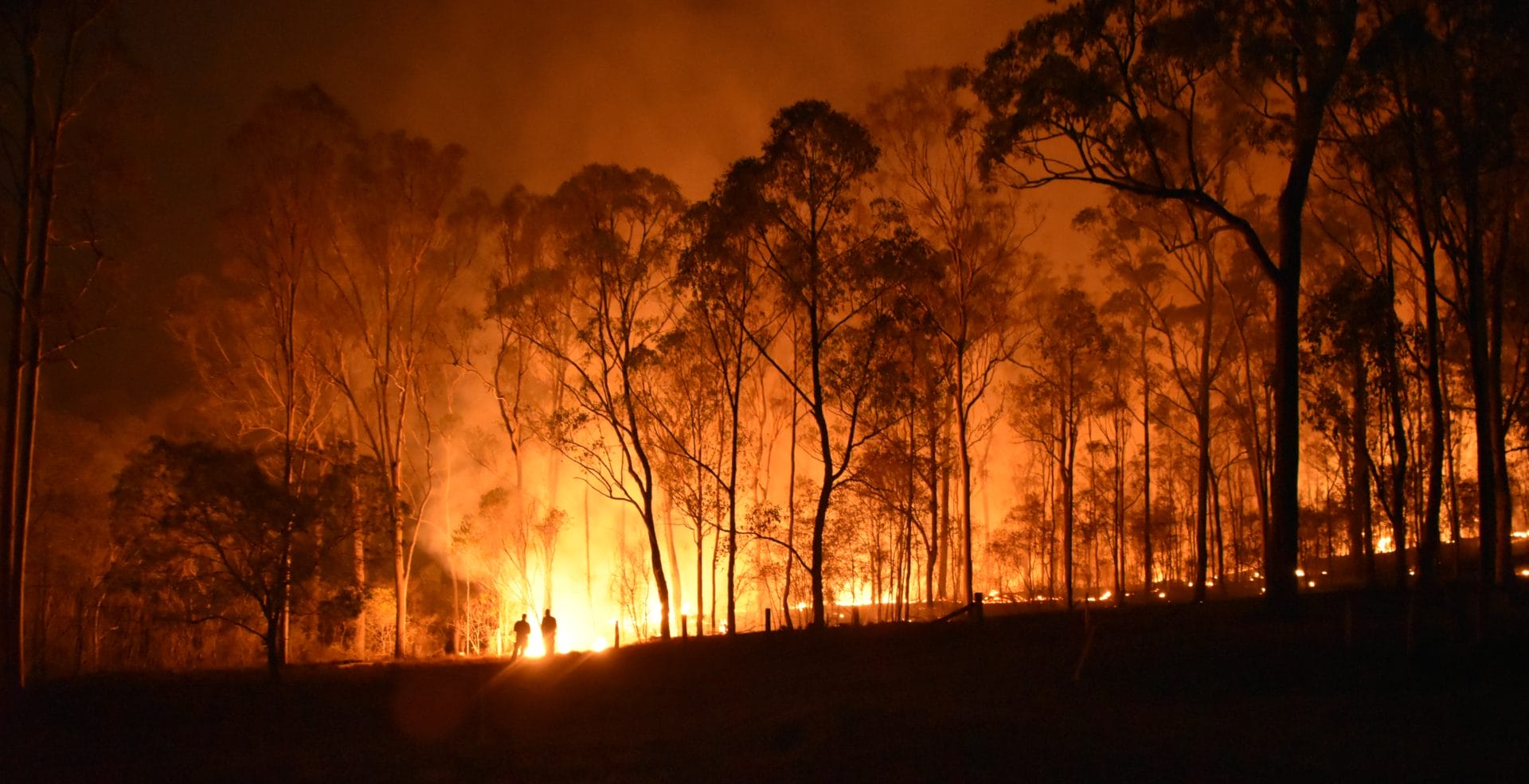
More than a hundred executives with links to industries blamed for pollution were permitted to take part in vital international talks to combat climate change, The Ferret can reveal.
Shell, Chevron, middle eastern oil companies, other fossil fuel firms, carbon traders, agribusiness and chemicals multinationals all registered to join United Nations (UN) climate negotiations in May and June — as did the nuclear power industry.
Campaigners say that allowing such “vested interests” to be involved is “pandering to climate-wrecking” and “unacceptable”. They accuse big businesses of trying “to delay genuine progress and push false solutions”.
The companies, however, defend their right to have their voices heard by decision-makers. “The business community needs to be part of the solution, so it needs to be part of the process,” argues one industry association.
In November Glasgow is due to host a meeting of world leaders to make decisions about cutting climate pollution. Known as COP26, it could be the largest international summit ever held in the UK.
It is seen by many worldwide as the most important since the 2015 historic agreement on cutting greenhouse gas emissions agreed by 196 countries in Paris. The US President, Jo Biden, is expected to attend.
COP26 is being organised by the UK Government for the UN Framework Convention on Climate Change (UNFCCC). Online negotiations in the run-up to COP26 were hosted by UNFCCC in Bonn from 31 May to 17 June, covering the agenda for Glasgow and country actions to tackle climate change.
An analysis of all those who registered to attend has revealed that 138 were linked to big business interests. They included 45 with links to the fossil fuel industry, 24 from the carbon trading business, 19 from the nuclear power industry and its backers, 12 from agribusiness interests, eight from the chemical industry and 30 from other industry groups.
The largest delegation was 24 people from the International Emissions Trading Association (Ieta), based in Geneva. It says its mission is to be “the trusted business voice on market-based climate solutions” and has many fossil fuel companies as members.
One of the Ieta representatives was David Hone, chief climate change advisor to the oil giant, Shell. He reportedly claimed in 2018 to have helped write part of the 2015 Paris Agreement on carbon markets.
In May Shell was told to cut its carbon emissions by a court in the Netherlands, following a legal challenge by environmental groups. On 20 July the company said it would appeal against the ruling.
Others on Ieta’s list included Kate Shilina from the German energy company, RWE, and Takashi Hongo from the Japanese firm, Mitsui. Both companies have fossil fuel interests.
The Paris-based business lobby group, the International Chamber of Commerce (ICC), had 15 people registered to attend the UN climate sessions. They included another of Shell’s climate advisors, Steve Schofield.
Other ICC representatives were Hinse Boonstra from the German drugs and pesticides multinational, Bayer, and Gloria Jaconelli from the agrochemical industry association, Croplife International.
There were four people registered from the International Petroleum Industry Environmental Conservation Association (Ipieca), which says it aims to advance “environmental and social performance”. One was Arthur Lee, a senior strategy advisor from the US oil company, Chevron.
Others included 11 people from Kuwaiti oil companies, one from a United Arab Emirates oil firm in Dubai, and one from Qatar Petroleum. Three of Russia’s delegation had links to fossil fuel, mining and chemical industries.
The World Business Council for Sustainable Development registered eight people with links to the Indian manufacturer, Tata, the Spanish energy company, Iberdrola, the Swiss food giant, Nestlé, and others.
Amongst others who registered for the climate talks were the Global Dairy Platform, which represents the dairy industry; the Edison Electric Institute, which brings together US power companies; and the industry-backed International Fertiliser Association.
The analysis of registrations was done by the campaign group, Glasgow Calls Out Polluters (Gcop). It met with UK COP26 president, Alok Sharma MP, in June to urge him to “kick polluters out of COP26”.
Gcop organiser, Eilidh Robb, warned that there could be a “corporate circus” at COP26. “The UK Government is refusing to challenge the industries at the centre of the climate crisis,” she said.
“Instead, they are pandering to their climate-wrecking interests by encouraging them to join vague and ill-defined net zero programmes which allow them to kick the can of climate action further down the road.”
Friends of the Earth Nigeria warned that the “profit-only” goals of businesses were incompatible with those of the UNFCCC. “Given the fossil fuel industry’s role in the massive carbon emissions that have led to the climate crisis, their accreditation and that of their allies to attend the climate talks represents an unacceptable and irreconcilable conflict of interest,” argued the group’s Philip Jakpor.
Corporate Europe Observatory, which exposes company lobbying, also criticised the UK Government. “The likes of Shell are only at the UN talks to delay genuine progress and push false solutions like carbon markets and offsets via lobby groups such as Ieta,” said the group’s researcher, Pascoe Sabido.
“Rather than slash industry emissions, these approaches allow firms to keep digging up and selling fossil fuels, which spells disaster for the climate. Yet the UK Government appears to be on board, and is pushing a similar agenda at COP26.”

Industry representatives insisted that they should be involved in international climate talks. “We believe in an open and fair democratic UN process that includes all points of view, including those who need to reduce emissions,” said a spokesperson for the International Emissions Trading Association.
“It is true that our membership includes fossil fuel companies and other industries — which know they need to, and are committed to, change.”
Ieta supported the Paris Agreement using “market-based approaches” which it said could deliver climate goals effectively. “We support the UK Government’s efforts to inspire a monumental, cooperative effort to achieve the Paris goals as soon as possible,” the spokesperson added.
“The business community needs to be part of the solution, so it needs to be part of the process. The Paris goals require cooperation at a scale not seen before — not exclusion and ‘cancel culture’ tactics.”
Ieta denied that it wrote parts of the Paris Agreement. “Ieta supported negotiators with our observations and recommendations on drafts, just like many other groups did, as part of the normal UN diplomatic and stakeholder process,” the spokesperson said.
“Our members observe UN climate negotiations, because they are serious about bringing business solutions to the climate challenge.”
Shell also said it supported the Paris Agreement. “We are very clear about the steps that we are taking to help meet society’s needs for more and cleaner energy,” a company spokesperson told The Ferret.
“We make no apology for talking to policy makers and regulators around the world to make our voice heard on crucial topics such as climate change and how to address it.”
Altogether the climate negotiations in May and June involved 177 governments and governmental groups with more than 3,200 people. In addition there were 219 non-governmental organisations present as observers, comprising more than 1,600 individuals.
The Cabinet Office in London, which is co-ordinating the UK COP26 presidency, referred The Ferret to the UNFCCC, saying it organised the talks. “The UK COP Presidency did not have a role in determining attendance of the event,” said a spokesperson.
The UN Framework Convention on Climate Change has been approached for comments. The International Chamber of Commerce and Chevron did not respond to requests to comment.
Nuclear industry ‘jumping on climate bandwagon’
The nuclear industry has come under fire for trying to influence international talks in the run-up to the COP26 climate summit in Glasgow in November.
Six people from the European Nuclear Society registered to attend UN negotiations in May and June. Two were from the UK Government’s Magnox Ltd, which is decommissioning nuclear plants, and one was from the US nuclear firm, Westinghouse.
There were also 12 representatives from the International Atomic Energy Agency, the UN body charged with both promoting and regulating nuclear power, plus one from the Canadian Nuclear Association.
The nuclear industry was accused by environmentalists of “jumping on the bandwagon” of change change. “The latest wheeze is to tell us that nuclear is the answer,” said Dr Richard Dixon, director of Friends of the Earth Scotland.
“With renewables and energy efficiency cheaper, quicker and safer than nuclear, they have already lost this argument and should have no place at COP26. The nuclear industry’s disastrous history of cost and time over-runs show very clearly that what they offer would be too little, too expensive and far too late.”
Pete Roche, policy advisor to the Scottish Nuclear Free Local Authorities, said: “When you look at nuclear power you find it is hopelessly expensive, far too slow to be of any use and hugely problematic — producing dangerous waste and with a potential risk of a serious accident.”
But the criticisms were rejected by the European Nuclear Society, which brings together more than 12,000 professionals from nuclear companies and other bodies. “We provide fact based information on nuclear technology and we call all policymakers to take the scientific-led approach while discussing the climate change solutions,” said the society’s external relations manager, Emilia Janisz.
“Nuclear energy is safe, reliable and available 24/7 and together with renewables creates a perfect energy mix to reach net zero target by 2050. The Intergovernmental Panel on Climate Change reports and the recent International Energy Agency reports show clearly a median projection of more than double the current primary energy supply from nuclear being required by 2050 in order to limit global temperature rise to 1.5°C.”
This investigation is the first of a series The Ferret is planning in the run-up to COP26 in November. The project has been supported by the European Climate Foundation, which cannot be held responsible for any use which may be made of the information contained or expressed therein.
Cover image thanks to iStock/philips. This story was published in tandem with the Sunday National.















This is the worlds largest polluter on the planet!
09/27/2018 Why the US military is the world’s largest polluter
According to experts, the Pentagon’s hazardous pollution trail came in forms of depleted uranium, oil, and jet fuels as well as pesticides, defoliants such as Agent Orange and lead, and other chemicals.
https://www.pollution.news/2018-09-27-why-the-us-military-is-the-worlds-largest-polluter.html